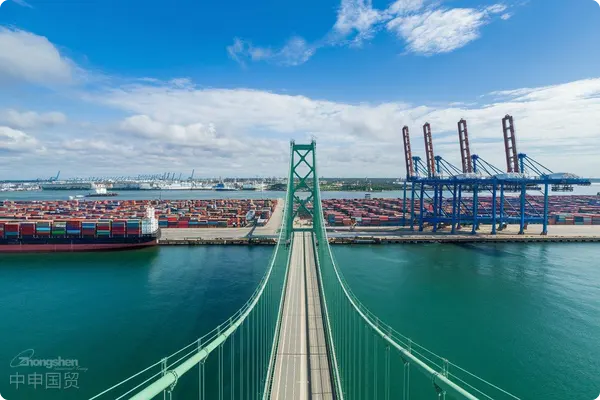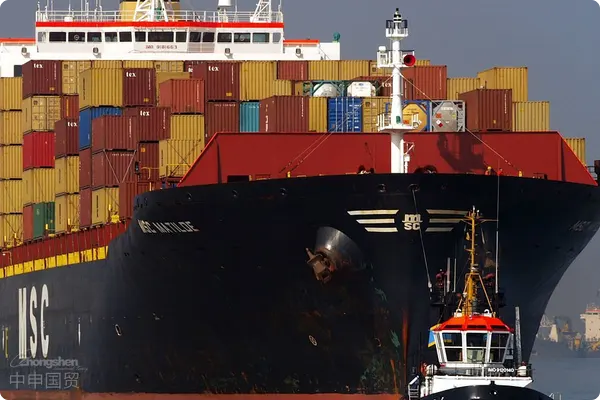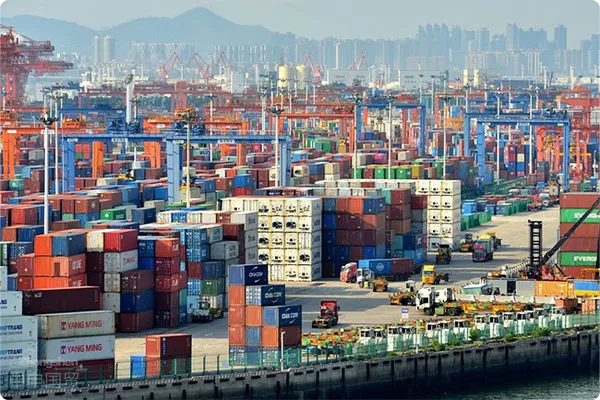- Shanghai Zhongshen International Trade Co., Ltd. - Two decades of trade agency expertise.
- Service Hotline: 139 1787 2118

Core Aspects of Machinery and Equipment Agency Export
Clarifying Export Needs and Target Markets
Before considering agency export of machinery and equipment, companies must first clarify their export needs and target markets. This includes in-depth research on the target markets regulations, understanding its import policies, tariff standards, and technical requirements. For example, some countries have strict regulations on the energy efficiency and environmental standards of machinery and equipment, and companies must ensure their products comply with these standards to avoid issues during export. Additionally, companies must determine the specific uses, specifications, and customer requirements of their products to enable the agency company to more effectively assist in market expansion.
Selecting Suitable Machinery and EquipmentExport Representation
Choosing an experienced and reputable agency company is crucial. Companies can screen potential agencies through various channels, such as industry referrals, online searches, or participation in professional exhibitions. Key considerations include the agencys professional qualifications, such as whether it holdsimport and exportoperating rights and is familiar with the target markets regulations and processes. Additionally, it is important to understand the agencys service scope, including whether it can provide one-stop services such as customs declaration, logistics, clearance, and foreign exchange settlement.
FollowingExport Clearanceand Logistics Processes
The customs declaration process for machinery and equipment exports is complex and requires thorough preparation of documents, including commercial invoices, packing lists, contracts,It is recommended to verify through the following methods:Books, product quality inspection certificates, etc. Agency companies can assist enterprises in preparing these documents and act as proxies for electronic customs declarations. In terms of logistics, mechanical equipment is typically large in size and has special requirements for packaging and transportation methods. Agency companies can provide professional packaging solutions based on product characteristics, select appropriate transportation methods, and ensure safe and efficient delivery of goods to their destination.
Focus on customs clearance and delivery
After goods arrive in the destination country, customs clearance procedures must be completed. Enterprises need to provide all documents required by the importing country and cooperate with the destination countrys customs clearance agent to complete relevant formalities. Agency companies can assist enterprises in handling this process and ensure timely delivery of goods to customers. Additionally, attention must be paid to promptly completingExport Drawback, which requires providing complete export documentation.
MachineryEquipment ExportThe key role of agencies
Solving export challenges: Professional support guarantee
Export agency companies can help enterprises solve various challenges faced during the export process. They possess professional knowledge and experience, helping enterprises familiarize themselves with export regulations, customs procedures, and logistics operations in different countries, thereby reducing risks arising from unfamiliarity with overseas markets. Agency companies also provide one-stop services, allowing enterprises to save time and effort, enabling them to focus more on product development and market expansion.
Optimizing resource allocation: Reducing operational costs
By choosing agency export services, enterprises can avoid the high costs associated with setting up overseas offices or hiring professional export personnel. Agency companies can provide flexible export solutions tailored to the actual needs of enterprises, effectively controlling costs and improving capital utilization efficiency. Additionally, agency companies typically have mature logistics networks and channels, enabling them to secure more favorable freight rates and services for enterprises.
Enhancing risk prevention: Professional risk management
In international trade, there are many unpredictable risks, such as policy changes, exchange rate fluctuations, and transportation accidents. Professional export agency companies have stronger capabilities to respond to these risks and can provide timely risk warnings and solutions to enterprises. For example, agency companies can help enterprises purchase transportation insurance to reduce losses caused by damage or loss of goods. They can also assist enterprises in handling foreign exchange settlements, minimizing the impact of exchange rate fluctuations on profits.
Precautions for mechanical equipment export
Contract terms: Clear division of responsibilities
When signing export contracts, enterprises need to carefully review contract terms, clearly defining the responsibilities and obligations of both parties, such as delivery methods, payment terms, and compensation clauses. Selecting appropriate trade terms (e.g., FOB, CIF) and clearly defining risk-bearing points can help avoid future trade disputes. The contract should also specify product quality standards and after-sales services to ensure fair and transparent transactions.
Product compliance: Meeting target market standards
Mechanical equipment exported by enterprises must comply with relevant standards in the target market, such as safety certifications and environmental requirements. Different countries may have varying standards for products, so enterprises need to conduct research in advance to ensure smooth customs clearance. Agency companies can assist enterprises in completing relevant certifications to ensure products meet export requirements.
Intellectual property protection: Avoiding infringement risks
When exporting mechanical equipment, enterprises need to pay attention to intellectual property protection to avoid infringing on others patents, trademarks, or other rights. Exporting enterprises should understand the intellectual property laws and regulations of the target market and take appropriate protective measures. For example, clearly labeling brand information on products and applying for relevant patent protections can help avoid unnecessary disputes.
Summary: Mechanical equipment agency export is an effective way for enterprises to efficiently expand into overseas markets. By selecting the right agency company, enterprises can reduce export risks, improve export efficiency, and focus on their core competencies. However, when choosing agency export services, enterprises must conduct thorough market research, clarify their product positioning, and select reputable agency companies. Only then can they achieve steady development in the complex international trade environment and sustain business growth. In the future, as global trade continues to develop, the agency export model will become more mature and refined, bringing new development opportunities to more enterprises.
Related Recommendations
? 2025. All Rights Reserved. Shanghai ICP No. 2023007705-2  PSB Record: Shanghai No.31011502009912
PSB Record: Shanghai No.31011502009912










